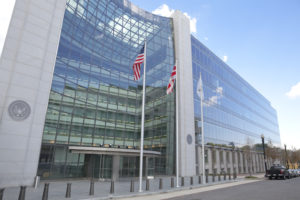
Pennsylvania Supreme Court holds that Philadelphia properly followed election law, FAA rescinds its grounding order for the Boeing 737 Max airplane, and more…
IN THE NEWS
- The Pennsylvania Supreme Court ruled that Philadelphia’s protocol for letting election observers watch ballot counting followed state law. The Philadelphia Board of Elections maintained at least 15 feet of separation between observers and the workers counting ballots, which the Trump campaign argued was a violation of election law. The court held that separation between poll workers and observers complied with Pennsylvania law because the law requires that observers are allowed “in the room” where ballots are counted but does not set any further requirements for the distance between observers and the counting tables. Jenna Ellis, a Trump campaign senior legal adviser, reportedly called the ruling “contrary to the clear purpose of the law.” Justice Debra Todd wrote the opinion and concluded that “it would be improper for this Court to judicially rewrite the statute by imposing distance requirements where the legislature has, in the exercise of its policy judgment, seen fit not to do so.”
- The Federal Aviation Administration (FAA) rescinded a grounding order for the Boeing 737 Max passenger airplane following an investigation of two crashes that killed 346 people in 2018 and 2019. Along with its rescission of the grounding order, the agency also issued an airworthiness directive that instructs Boeing to work with airlines to revise flight procedures and to implement updated flight control systems. One day before the FAA issued the order, the U.S. House of Representatives enacted a law that requires the FAA to reform its safety certification process for new aircraft and requires aircraft manufacturers to adopt safety management procedures according to international standards. The law follows an investigative report by the House Committee on Transportation and Infrastructure that revealed that the crashes were caused in part by Boeing’s faulty design and “culture of concealment” in addition to the FAA’s failure to exercise proper oversight.
- Acting Secretary of Defense Christopher Miller announced President Donald J. Trump’s decision to withdraw troops from Afghanistan and Iraq. Miller stated that there would be 2,500 troops in Afghanistan and 2,500 troops in Iraq by January 15, 2021, five days before President Trump is expected to leave office. A senior defense official reportedly expressed confidence in the ability of the remaining troops to accomplish U.S. Department of Defense goals. Top Defense Department officials, however, have reportedly advised against reducing troops for months because the situation has not improved enough for troops to be withdrawn. U.S. Representative Mac Thornberry (R-Texas), ranking member of the House Armed Services Committee, reportedly called the withdrawal “a mistake.”
- U.S. Secretary of State Mike Pompeo issued guidelines to label goods produced in West Bank settlements as “Product of Israel” or “Made in Israel” to promote consistency with United States foreign policy. Secretary Pompeo also directed an office in the U.S. Department of State to identify organizations that support the Global BDS Campaign—which calls for divestment from companies and organizations that support Israel—and reconsider funding to those organizations. On the same day that he issued these announcements, Secretary Pompeo became the first top U.S. diplomat to visit an Israeli settlement in the West Bank region.
- The U.S. Food and Drug Administration granted emergency use authorization for a COVID-19 test that can be administered without sending samples to a lab. The $50 test is a single-use, nasal swab that can deliver results in as little as 30 minutes. The clinical study supporting the authorization showed that the at-home test is as reliable as the most accurate lab-based test in 94 percent of cases, although some physicians reportedly expressed concern that the study was not large enough to be conclusive. Valerie Fitzhugh-Kull, a professor of pathology at Rutgers New Jersey Medical School, reportedly warned that a person who tests negative at home but shows symptoms of COVID-19 should go to a physician to be tested again.
- The Federal Railroad Administration finalized a rule that establishes new standards for measuring the performance of Amtrak passenger trains. The agency issued the new rule in response to a ruling by the U.S. Court of Appeals for the District of Columbia Circuit that found that Amtrak’s previous performance metrics had violated the Due Process Clause of the U.S. Constitution. The new rule will affect enforcement of the Passenger Rail Investment and Improvement Act of 2008, which grants the agency authority to investigate whether freight railroad carriers are at fault in causing delays and poor performance of Amtrak passenger trains. Federal Railroad Administration Administrator Ronald Batory said in a statement that the rule will also make coordination between freight and passenger rail companies easier, which will result in “a huge victory for the traveling public.”
- The U.S. Senate blocked President Trump’s nomination of Judy Shelton to the Federal Reserve Board of Governors through a procedural vote that stopped the confirmation process from moving forward. The Senate vote to confirm Shelton failed because of bipartisan opposition to her nomination and absences due to the pandemic. Senators Mitt Romney (R-Utah) and Susan Collins (R-Maine) had expressed opposition to Shelton’s nomination and Senators Chuck Grassley (R-Iowa) and Rick Scott (R-Fla.) were in quarantine due to coronavirus exposure. Senator Sherrod Brown (D-Ohio) called the vote “a victory for workers, their families, and the economic stability Americans voted for.”
- The U.S. Securities and Exchange Commission (SEC) Chairman Jay Clayton announced that he would leave his position at the end of 2020, with 18 months left in his term. Clayton’s departure gives President Trump a short window to appoint a replacement, or else President-Elect Joe Biden will have the opportunity to fill the key financial regulatory position. In his departing statement, Clayton celebrated the accomplishments of his “diverse and inclusive SEC team” that “improved investor protections, promoted capital formation for small and larger businesses, and enabled our markets to function more transparently and efficiently.”
- Iowa Governor Kim Reynolds signed a proclamation requiring, with some exceptions, people over the age of 2 to wear masks in indoor public spaces. The proclamation also limited indoor social, community, business, and leisure gatherings to 15 people and limited outdoor gatherings to 30 people. The proclamation represented a shift for Reynolds, who had previously stated that she would not to implement a mask mandate. Announcing the proclamation, Governor Reynolds said that “no one wants to do this. I do not want to do this,” but that “if Iowans do not buy into this, we will lose.”
WHAT WE’RE READING THIS WEEK
- The Massachusetts Institute of Technology’s Task Force on Work of the Future released a report finding that outdated labor and employment policies—not automation and artificial intelligence—have caused unemployment and low wages in the United States. The task force compared the United States with countries such as Canada and Germany that have shared similar technological change and growth patterns, finding that U.S. workers have lower wages and fewer employment opportunities by comparison. The task force recommended wide-ranging regulatory changes to support balanced economic growth, including a more flexible unemployment system, minimum wage increases, and increased funding for training programs that transition workers away from industries affected by changing technology.
- In a recent paper, Martin Andersen, professor at the University of North Carolina at Greensboro, along with Sylvia Bryan and David Slusky, respectively a student and a professor at the University of Kansas, examined the effect of COVID-19 elective medical procedure restrictions on abortion access. Although there was a substantial decrease in abortion clinic visits across the country, Andersen, Bryan, and Slusky found that there was an additional 23 percent decrease in abortion clinic visits in states that had banned elective medical procedures. Andersen, Bryan, and Slusky did not find, however, a significant additional decrease in abortion clinic visits in states that implemented laws explicitly targeting abortion.
- In a Pew Research Center report, Samirah Majumdar and Virginia Villa found that, in 2018, government restrictions on religion reached an all-time high since Pew Research Center began tracking these trends in 2007. The report government restrictions on religion rated 198 countries and territories. According to the report, these findings correlated with an increase in the number of governments controlling religious groups through force.
FLASHBACK FRIDAY
- In an essay in The Regulatory Review, Luke Herrine, Ph.D. candidate at Yale Law School, argued that the U.S. Department of Education has the power to cancel student loan debt. Because the Education Department has the authority to “compromise, waive, or release any right” to issue and collect student loans, Herrine argued that the Department can use this power more broadly to forgive all student loan debt or cancel a significant portion of that debt. Herrine concluded that the main barrier to cancelling student debt is political will.



